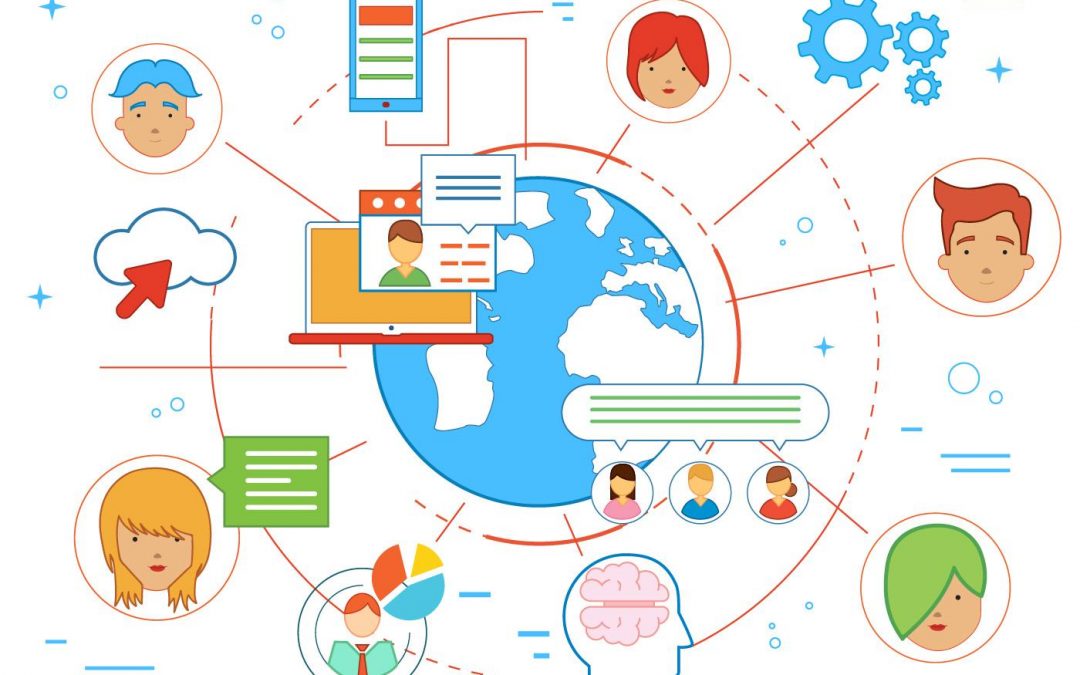Up to this year, 2019, plenty of businesses are not entirely sure what Customer Relationship Management (CRM) solutions and CRM features can do for them specifically. It is so easy to make a CRM choice based on what others are doing. Having the thought that it is an insurance policy against failure. But it is not. And it certainly does not guarantee success.
What does load us up for the win though, is choosing empowering technology and making it fit beautifully. CRM is a platform that spreads comfortably under every critical point in your business that move everything to where you want it to.
So step one is to clearly set out your business goals. Step two is to map out the CRM features that enable each one.
It can be tricky to unpick specific features from all the CRM and marketing. But it is worth doing and putting vendors through their paces to get you get there. Choosing CRM will never be as easy as choosing shoes, but you have the right to demand clarity and simplicity.
Here are some business outcomes you might want specific CRM features to support:
Engaging your audiences
You probably have a symphony of stakeholders – perhaps employees, customers, investors, suppliers, retailers, press, and government bodies. The more you understand your audiences and the people involved, the more you can gear your business to deliver what matters and build a mutual beneficial relationships. That equals a strong, sustainable, growing business.
CRM must help you build this understanding by utilizing data, tracking interactions and analyzing experiences. Then it must help create the best experience at every interaction. That means guiding your people through planned-out processes and giving them the right information at the right time via whatever communications channel is best for the audience.
Features to consider: data management, audience profiling, audience journey mapping, interaction management, information / knowledge sharing, unified multi-channel interactions.
Sales & service
Selling is the reason for being in business. We all do it. But how well?
Imagine everything that is most effective about selling: those moments of engagement where your salespeople are explaining things, exciting and winning people over. Then imagine freeing them up to do just that for most of their time…less admin, less data capture, less tedious research, less reporting…more engaging. Yup, the answer is technology.
You want your CRM to guide your salespeople through a proven selling process, furnishing them with the tools and information they need at every step. It should monitor their progress, flag things that need attention, and present reports and forecasts you can easily understand and trust. Sounds like heaven, but it’s perfectly possible to achieve.
Features to consider: sales behaviour and productivity tools, sales automation, lead management, quote management, and reporting and forecasting.
Marketing
How are you attracting attention and getting potential customers interested enough to engage with your brand? It’s 2019 – you probably know that the best way to approach this is with CRM.
CRM is the train track for your marketing strategy. It helps you to execute, manage and report on every part of the process. You can set it up to get your messages to the right audiences at the right times, using any channel…social media, events, emails, post, whatever. It’s the platform for creating and qualifying new leads and nurturing them through to sales.
Automation gets CRM doing tedious crunch work so your people can think, plan, strategize, and experiment more. As with sales, CRM reporting can give a clear view of the usage of your resources and what you are getting back for them.
Features to consider: customer profiling, data management, campaign management, lead management, social media integration, marketing platform integration.
Looking after customers
Happy customers mean more value to your business. If you turn them into advocates, they can even help you attract new customers. Customer service processes can be managed tightly via CRM. It is the best way to keep a real-time view of customer satisfaction. By understanding each customer touchpoint and empowering your people with the right tools and information, you can make excellent customer experience the norm.
Features to consider: service process and workflow management, case management, service metrics reporting and dashboards, customer satisfaction measurement, self-service.
Make it work for you
Will your CRM be customizable? Will it fit into your business? Can you add features or jettison them, and shape the platform as time goes by?
CRM should work around you, your people and the good technologies and processes you already have in place. If you have to change perfectly good elements of your business or compromise on what really works for you, just to get a popular CRM, then it’s time to reflect. All your competitors will be compromising too – but you don’t have to. What could that mean for your business?
And CRM isn’t all about the initial implementation – it’s a platform that should enable change, and therefore needs to be flexible itself. It’s critical to understand the total cost of operating, changing and developing your CRM over time. If too many things will be cast in stone and you’ll need to give up the freedom to try new things and respond to changing markets, that is a red flag.
Features to consider: flexible team, role and security management, customizable workflow and process management, project and task management that fits to your business, customizable and DIY-ready reporting with dashboards and analytics, ease of integration and development, open mobile deployment, and a licensing agreement that suits you.

